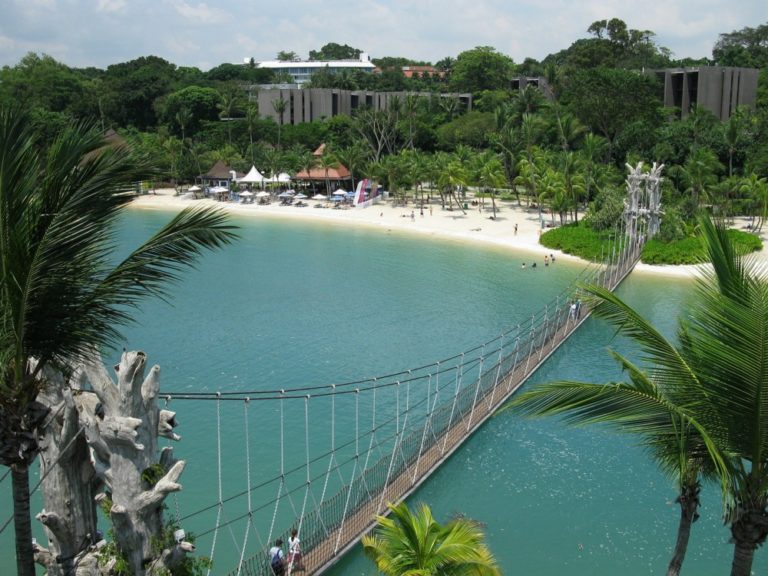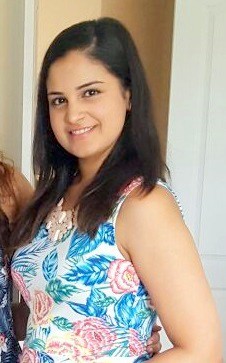Jaz Randhawa is a young 25-years-old student from Singapore who uses technology in her favor to raise awareness on climate change. She decided to enroll in our NAP-Ag MOOC and have learned more about climate change and how the rising temperatures are affecting the world’s land, water, and air. As a millennial, she doesn’t miss an opportunity to become a proactive member of her community and is already making a difference in her country.
Perhaps mine is not a story of what I do now to make a difference, but rather my goal, my dream, and what I aspire to be. Taking this course in climate change was my first real step in understanding what needs to be done and how people are making progress every day.”
Jaz Randhawa, 25, has always wanted to make a difference in the world, but for a very long time couldn’t find a place to start. Growing up in three different continents, she was exposed to a variety of cultures, languages, and opinions and was always eager to see more of the worlds’ beauty. A part-time business student with a full-time job, Jaz aspires for a career in the United Nations in the future.
Exploring ways to build a strong skill-set and knowledge base to eventually apply at the United Nations, Jaz landed on an online course, the National Adaptation Plans: Building Climate Resilience in Agriculture (NAP-Ag MOOC) hosted on the UN CC:e-Learn platform.
I found this course incredible in a variety of ways — how the content was interjected with real-life stories of people who are working hard to make a better world for all, having quizzes to make sure knowledge is retained, and the peer assessments.”
The peer assessments, seem to have been her favorite. This unique learning tool asks participants to develop their own agriculture adaptation projects and share their work with their fellow learners for feedback and support.
The peer assessments were a brilliant exercise in having course participants relate to the content being taught. In addition, reading the assessments of my fellow participants made me realize the different issues that were affecting the world.”
The course offered her a piece of the world and helped her see not only the different issues but also learn about the solutions that are envisioned or even already implemented by her peers. Through the NAP-Ag MOOC, she learned more about climate change, how it is affecting the world’s land, water and air and started thinking of how she could make a difference.
Today, Jaz lives in Canada, the Great White North, but she was born in sunny Singapore. Although Canada is a beautiful country with much to offer, Jaz still has an emotional connection with her country of birth, and this is the reason she picked Singapore for her peer assessments for the NAP-Ag MOOC. She says that as one of the most prosperous and urbanized cities in the world, Singapore is known for its rich diversity in everything: entertainment, culture, people, language, and most importantly, the food!
And yet, as Jaz explains in her work, there are downsides to being a small country with limited landmass — namely Singapore’s relationship with water. Climate change exacerbates water shortages and escalates sea level rise. The already limited agricultural land and freshwater reservoirs are contaminated with salty seawater.

Through her peer assignment work, Jaz found that multiple adaption projects are currently underway that curtail low water supply by developing water reservoirs in-country and abroad in Malaysia. But these were not enough. For her,
it is imperative that we focus on the root cause of the problem for which they are building solutions. By tackling the problem (climate change), and not the effects (water shortages, flooding, pollution), we can make more efficient waves of progress.”
Ultimately, she chose to focus on a project raising awareness about ‘climate change’ through social media and technology.
“We can no longer deny that climate change is a very real problem that is affecting the world and our daily consumption that we take for granted. As a “millennial”, I fully understand the power of social media and technology. The more we integrate awareness for tackling climate change for the world to see, the more people will understand that this is a very real problem that we should all seek to change.”
Following UNITAR’s LinkedIn account she discovered an initiative called the UN CC:Learn that offers a variety of free courses to educate the world on climate change and took a definitive step toward her goal.
I believe in positivity and hope — where there are people willing to make a difference, change will come.”
Article Credit: uncclearn
